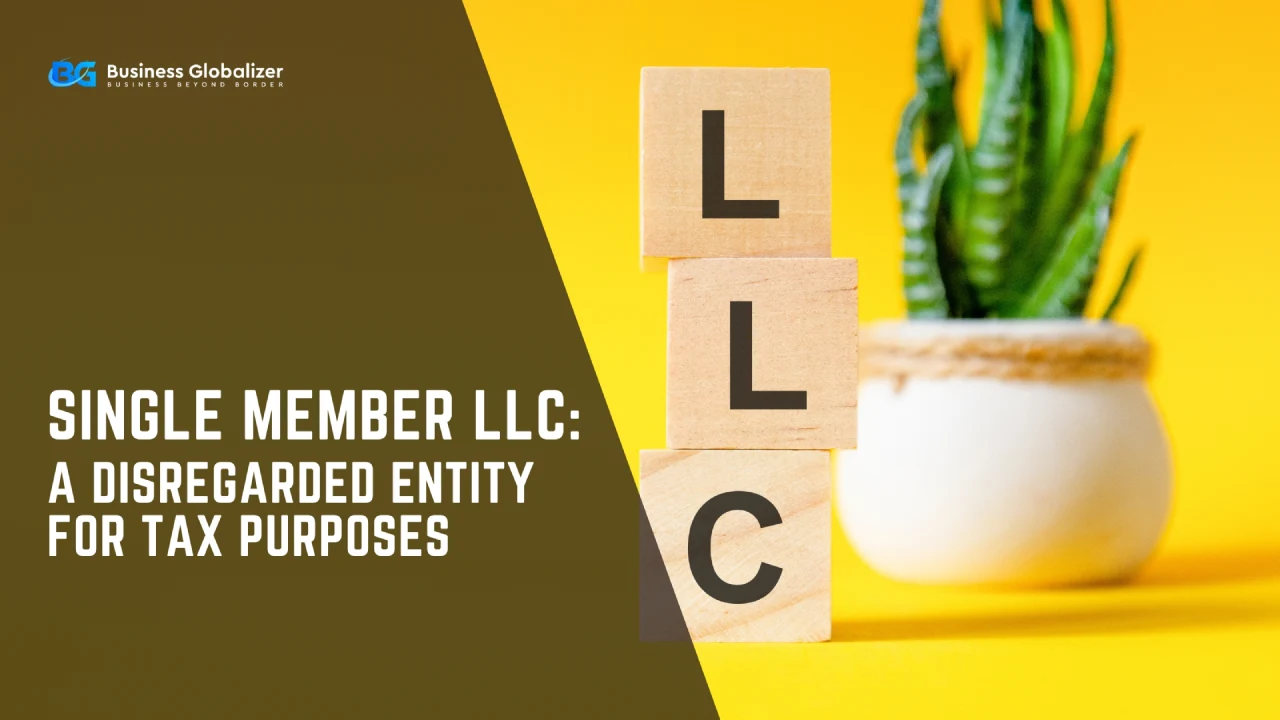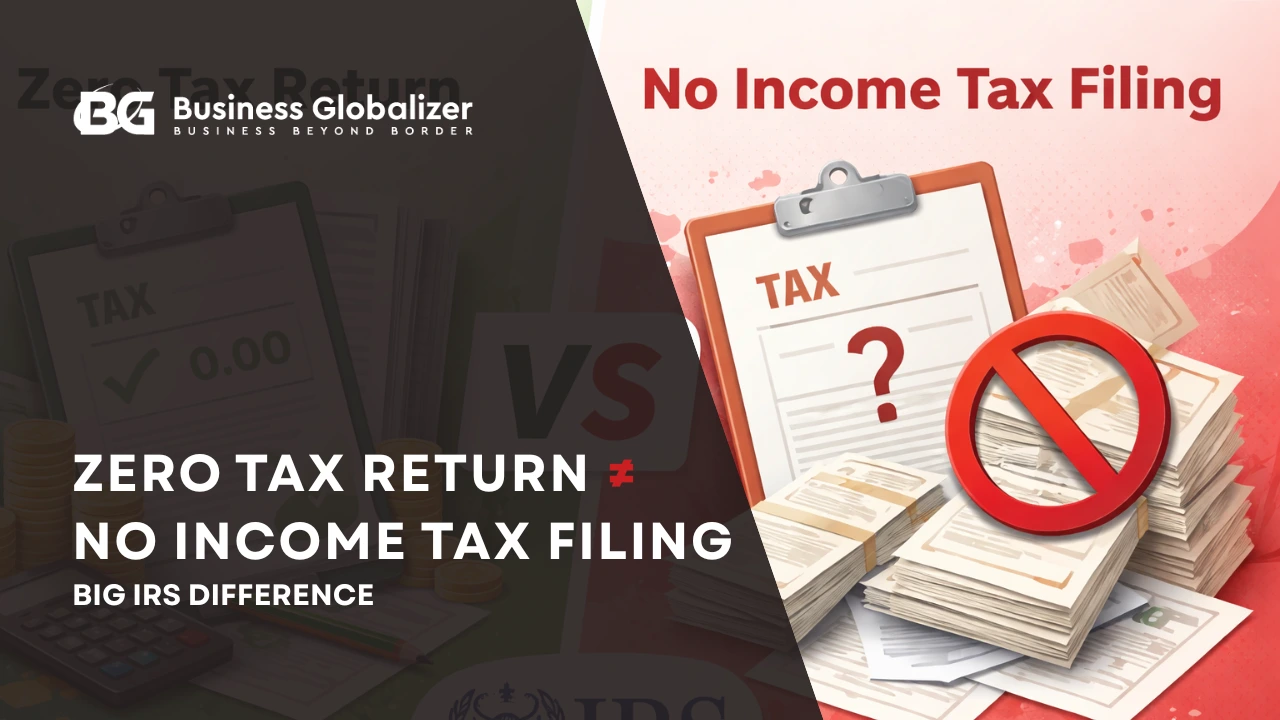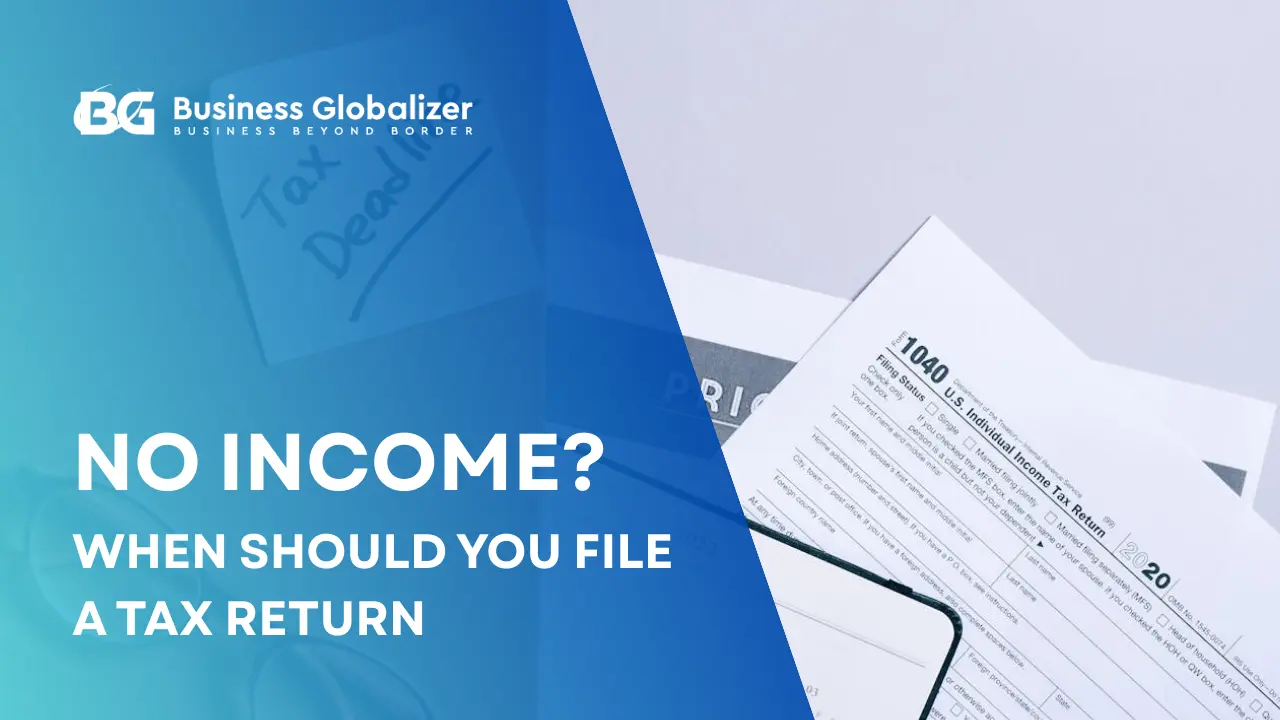Hey there! Are you feeling swamped by tax season? Panic not; we’ve all been there at some point—regardless of whether we are entrepreneurs or individuals—and we may still be. However, if you’re looking for a means to make your business taxes simple and easy, you’ve come to the right place.
A single-member LLC, also known as a disregarded entity for tax purposes, can remarkably take a lot of the hassle out of one’s tax filing process.
Today, in this guide, we’ll go over the entire concept of a disregarded entity with you—what it is, how it works, and why it’s such a big deal for business owners. Imagine less paperwork and less stress. Sounds pretty great and tempting, right? Let’s dive into how a disregarded entity might make your taxes easier to manage.
Disregarded Entity Definition
The very first question you may have right now is, “What is a disregarded entity?” Don’t worry; we have you covered.
A “disregarded entity” is a term or phrase used by the IRS to describe a business that’s effectively treated as an extension of its owner for federal tax purposes. To simply put, the IRS ignores the business as a separate entity, so all its income and expenses go straight onto the owner’s personal tax return.
A single-member LLC is a common example of a disregarded entity. Now, to be considered a disregarded entity, your company must:
- Have a single owner.
- Not be set up as a corporation.
- Not have chosen to be taxed as a separate entity.
This tax classification can be especially useful for small business owners, as it reduces the paperwork and complexity that come with separate tax filings. Understanding whether your company qualifies as a disregarded entity can help to make your tax processes simple and keep things easier.
Disregarded Entity Examples
Let’s give an example here: If you own a single-member LLC, the IRS treats your LLC as a disregarded entity. This means you just need to include the LLC’s income and expenses on your personal tax return. It’s worth noting that if your business is disregarded for federal taxes, it often is for state taxes too—though this can vary by state.
What Does It Mean to Be a Disregarded Entity for Tax Purposes?
Being a disregarded entity for tax purposes means that the IRS ignores the entity itself when submitting taxes. Instead, all income and expenses are reported directly on the owner’s personal tax return, making the tax procedure easier and reducing paperwork.
What Are Disregarded Entity IRS Rules?
Figuring out if your business is a disregarded entity for tax purposes can be very easy. The most common disregarded entity is a single-member LLC (SMLLC). This means that the IRS does not treat your LLC as a separate entity from you, the owner, for income tax purposes.
However, there are a couple of exceptions:
- If you file an Entity Classification Election (Form 8832), you can choose to have your LLC treated as a corporation.
- Single-member LLCs owned by S corporations also count as disregarded entities.
- LLCs owned by two spouses are usually taxed as partnerships. However, in states with community property laws, the IRS might allow them to be treated as disregarded entities.
To keep your SMLLC status, make sure you meet your state’s LLC requirements and don’t add any additional members. Because keeping your LLC simple and meeting all the requirements will help you maintain that disregarded entity status and simplify your taxes!
Types of Disregarded Entity for Tax Purposes
The most common example of a disregarded entity is a Single-Member Limited Liability Company (SMLLC). If you form an SMLLC, the IRS automatically treats it as a disregarded entity for tax purposes unless you choose a different classification.
Here are a few other types:
- Qualified Subchapter S Subsidiaries (QSubs): These are subsidiary companies owned by an S-Corp. The entity must file Form 8869 to be identified as a QSub.
- Qualified REIT Subsidiaries: These are subsidiaries of real estate investment trusts.
While sole proprietorships and S-Corps also pass income through to the owner, they aren’t technically considered disregarded entities. Partnerships, corporations, and multi-member LLCs do not qualify either.
Tax Liabilities of a Disregarded Entity
When you have a disregarded entity, like a single-member LLC, it means the IRS treats your business as part of you for tax purposes. This can make things easier—also means you must know a few key points about taxes.
Let’s talk about what you should keep in mind:
- Income Taxes: You’ll report your business’s income and expenses on your personal tax return. It’s simpler because you file just one return, but it also means you’re paying taxes on your business income directly.
- Self-Employment Taxes: You’re responsible for self-employment taxes, which cover Social Security and Medicare. These can add up, so it’s important to save money throughout the year to cover these costs.
- Employment and Excise Taxes: If you have employees, you need to withhold and pay employment taxes, like federal income tax, Social Security, and Medicare. If your business has any excise taxes, you’ll need to handle those too.
- State and Local Taxes: While the IRS doesn’t see your business as separate, your state might. This means you could owe state income taxes, sales taxes, and other local taxes.
What Is a Disregarded Entity LLC?
A disregarded entity LLC or single-member LLC is where the IRS treats the business and the owner as the same for tax purposes. This means the LLC or business doesn’t pay its own taxes. Instead, the owner reports the business’s income and expenses on their personal tax return, just like with a sole proprietorship.
Here’s why it’s great: You get the legal protection of an LLC, which means your personal assets are safe from business liabilities, and you avoid the complexity of corporate taxes. All you need to do is file Schedule C or Form 5472 with your personal tax return (Form 1040/1120). Plus, if you ever want to change how your single-member LLC is taxed, you can file Form 8832 to have it taxed as a different entity.
Note: The Schedule C and Form 1040 are for US-resident business owners. For nonresidents, the forms will be Form 1120 and Form 5472. Based on different situations, additional forms may be included.
How and When Do Single-Member LLC Quarterly Taxes Work?
If you own a single-member LLC (SMLLC), you may be required to make quarterly estimated tax payments. Since your LLC is a “pass-through entity,” it doesn’t pay corporate income tax. Instead, the business income flows directly to your personal tax return.
As the owner, you need to pay estimated taxes on your earnings throughout the year. You can either set aside an estimated amount from your gross income to pay directly to the government or make estimated payments.
Here’s how it works:
Quarterly Estimated Tax Payments:
- April 15: Pay for the first quarter’s income.
- June 15: Pay for the second quarter’s income.
- September 15: Pay for the third quarter’s income.
- January 15 (next year): Pay for the fourth quarter’s income.
Remember, the April 15 deadline for your first-quarter payment is separate from the April 15 deadline for filing your individual tax return. You’ll need to file your return and make your quarterly payment on the same day.
Pros and Cons of Disregarded Entity
There are a few benefits and drawbacks of a disregarded entity. We tried to cover that briefly for you; remember, some rules vary depending on scenarios and situations.
Advantages of Disregarded Entity
- Easier Tax Filing: Since your business income and expenses are reported on your personal tax return, you only need to file one return. This makes the whole process a lot simpler.
- Pass-Through Taxation: No double taxation here! Your LLC’s income flows straight to you, so only you pay taxes, not the business itself.
- Liability Protection: Your personal assets are safe from business debts and claims because the LLC is a separate entity for liability purposes.
- No Double Taxation: Unlike C-corporations, your earnings aren’t taxed twice—just once when they pass through to you.
Disadvantages of Disregarded Entity
- Raising Capital: Finding new investors can be tough since a disregarded entity is limited to one owner.
- Extra Payroll Taxes: You’re on the hook for both the employer and employee portions of Social Security and Medicare taxes.
- Other Taxes Still Apply: Even though it’s disregarded for income tax, you still have to deal with employment, franchise, sales, and excise taxes.
Once you’ve considered the abovementioned pros and cons, you can choose whether to keep your disregarded entity status or opt to have your LLC taxed as a corporation. This decision can be made either when you first form your LLC or at a later time.
Do Disregarded Entities Require Special Filing?
No, disregarded entities don’t require special filing for federal income taxes. As a single-member LLC, your business income and expenses are reported on your personal tax return using Form 1040 with Schedule C (for US residents) and Form 1120 along with Form 5472 (for non-residents). This simplifies the filing process, as you don’t need to file a separate return for the LLC itself.
However, there are some additional filings and considerations to keep in mind:
- Employment and Excise Taxes: If your LLC has employees or specific tax liabilities, you’ll need to file the appropriate forms and use an Employer Identification Number (EIN).
- State Taxes: While federal income taxes are simplified, you must still comply with state tax requirements, which can include employment, sales, and excise taxes.
- Annual Reports: Some states require LLCs to file annual reports and pay associated fees to maintain good standing.
Does a Disregarded Entity for Tax Purposes Need an EIN?
If you have a single-member LLC that’s considered a disregarded entity for tax purposes, you might be wondering whether you need an Employer Identification Number (EIN). The answer depends on a few factors.
For most single-member LLCs without employees or excise tax liabilities, you don’t actually need an EIN. You can use your own name and Social Security Number (SSN) or any other TIN (i.g. ITIN) for federal tax purposes.
However, there are a couple of scenarios where an EIN could be necessary or just really handy:
- Opening a Bank Account: Many banks require an EIN to open a business bank account, even if you’re the only member of the LLC.
- State Tax Requirements: Some states might require your LLC to have an EIN for state tax filings or other reasons.
So, while you might not always need an EIN, it can make certain aspects of running your business easier. And don’t worry—getting an EIN is a simple process through the IRS if you discover you need one. Besides, you can get one through Business Globalizer too!
How Can Business Globalizer Help?
Is it too much? The whole disregarded entity for tax purposes thing and the single-member LLC taxation? It could be; as everyone knows, tax is a very complicated concept. From registration to filing, paying, and overall, the whole tax management process could seem like a burdensome hassle.
Fear not; we are here. Business Globalizer is offering a great deal of help with almost a decade of expertise in US tax filing for nonresidents.
FAQs
Q1: Is an S Corp a Disregarded Entity?
Answer: An S Corp might seem like a disregarded entity since its income flows through to the individual shareholders, but it’s not technically considered one. Only single-member LLCs can be disregarded entities. Partnerships, corporations, and multi-member LLCs also don’t fall under this category. So, while S Corps shares some similarities with disregarded entities, they are treated differently for tax purposes.
Q2: What Type of TIN Should Be Reported by a Disregarded Entity for Tax Purposes in the US?
Answer: A disregarded entity is not considered separate from its owner for US tax purposes. This means the owner reports the entity’s income and deductions on their own federal tax return.
If a disregarded entity is a reporting company, it must provide beneficial ownership information (BOI) to FinCEN. The reporting company needs to include one of these types of taxpayer identification numbers (TINs) in its BOI report:
- Employer Identification Number (EIN).
- Social Security Number (SSN).
- Individual Taxpayer Identification Number (ITIN).
Q3: Is It Better to Be a Disregarded Entity?
Answer: Whether being a disregarded entity is “better” depends entirely on your specific circumstances. Besides, there are some considering factors such as:
- Business Structure.
- Tax Implications.
- Liability Concerns.
- Future Growth Plans.
Still confused? Then we will highly recommend consulting with an expert.
Q4: Are a Disregarded Entity and a Single-Member LLC the Same?
Answer: Yes, a single-member LLC (SMLLC) is usually treated as a disregarded entity for federal taxes. This means the IRS doesn’t see the LLC as separate from its owner, so the LLC’s income and expenses are reported on the owner’s personal tax return. However, while all single-member LLCs can be disregarded entities, not all disregarded entities are single-member LLCs; some other types, like certain trusts and QSubs, can also be disregarded entities.
Q5: Is There Any Disregarded Entity Multi Member LLC?
Answer: No, a multi-member LLC can never be a disregarded entity for tax purposes.
Final Words
Wrapping up, and understanding a disregarded entity for tax purposes can truly simplify your business tax life. As you are obliged to report your single-member LLC’s financials with the personal tax return, you can cut down on paperwork and stress. Whether you’re a small business owner or thinking about starting one, knowing the ins and outs of disregarded entities can give you a real advantage.
Have more questions? Reach out today to ensure you’re making the best decisions for your business. Happy tax filing!






